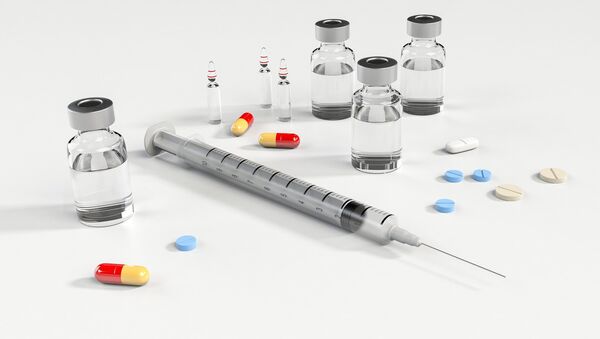Looking at how cheap diagnostic tests could prevent such risks, Sputnik spoke to Dr Ankur Mutreja from the Department of Medicine, University of Cambridge, in this interview.
Sputnik: How is the coronavirus pandemic affecting or even accelerating other public health risks particularly AMR?
Ankur Mutreja: So, there are two ways to look at it. One is a lot of advocacy and a lot of groundwork was done to raise awareness for AMR and because of the COVID crisis, all the focus has basically come to COVID, and all the diseases, syndromes, problems and challenges such as AMR, and other things, have been put on the back burner. It doesn't really mean that they don't exist anymore because they do. That's one challenge because of COVID, the other challenge is that COVID has resulted in lockdown in most of the countries around the world and what that has done is it has interrupted the vaccination schedules of children around the world and what COVID has done is because of lockdown people have stopped going to the hospitals in many parts of the world and in some places, even hospitals were struggling to actually cater to these children who would require vaccines.
What a vaccination does it basically protects a person from getting the disease. So even if the person gets an infection and they are vaccinated they won't end up building disease. If they are not vaccinated, they would end up getting the disease, which means that then they would have to be treated with antibiotics. The more antibiotics are used the more there is a chance of antibiotic resistance development (AMR).
Sputnik: How can experts, medics and authorities test for AMR going forwards? Can we perhaps apply or even learn some of the lessons and apply some quick tests that we've seen during the COVID pandemic to test for AMR going forwards?
Ankur Mutreja: I think a lot of work is being done in this direction. At the moment, at the point of care, there's hardly any testing done for AMR. What COVID has done as a good thing is it has really raised the portfolio of testing or the importance of testing. Going forwards, the technologies that have been developed or the technologies that already exist and have been adopted now to work for COVID, at the point of care level; those technologies are going to be explored for all sorts of other things as well, such as AMR, and in the detection of other diseases as well. A lesson from COVID is that the testing is not just something that was a saviour for COVID but for other things as well, such as Amr, and diseases of the underdeveloped and low and middle income countries, and in fact, even in developed countries.
Sputnik: Could you explain a bit more about this test that you're developing at Cambridge University?
Ankur Mutreja: So, what we have done is we've used the portable versions of existing technologies and we've designed what we call 'smart probe' to detect as much AMR as is possible in the minimum amount of time, effort and cost. We've packaged that into a suitcase that can essentially be shaped or carried as hand luggage in a plane, for example, it would have solar powered systems if these have to be deployed in emergency situations.
Essentially, we've brought the laboratory to a place where generally people used to think a lab would not be able to function and as soon as we've learned, whatever the gaps that there are in in our design as well we will put them together. We're looking at around the year timeline to get this out in the market.



